Abstract
OBJECTIVES. The study was conducted to refine guidelines on moderate drinking for problem drinkers, persons whose alcohol use is hazardous or harmful. Information on levels of alcohol intake unlikely to cause problems is useful for health professionals, educators, and policymakers. METHODS. Based on their reports of alcohol-related problems, participants in three studies assessing interventions to reduce heavy drinking (114 men, 91 women) were categorized as "problem-free" or "problem" drinkers at follow-up. Drinking measures were examined to identify patterns separating these outcome categories. RESULTS. Analyses using 95% confidence intervals for means on drinking measures showed that guidelines should be sex-specific. Based on analyses of positive and negative predictive value, sensitivity, and specificity, it is recommended that men consume no more than 4 standard drinks in any day and 16 drinks in any week, and that women consume no more than 3 drinks in any day and 12 drinks in any week. CONCLUSIONS. These guidelines are consistent with those from several official bodies and should be useful for advising problem drinkers when moderation is a valid treatment goal. Their applicability to the general population is unevaluated.
Full text
PDF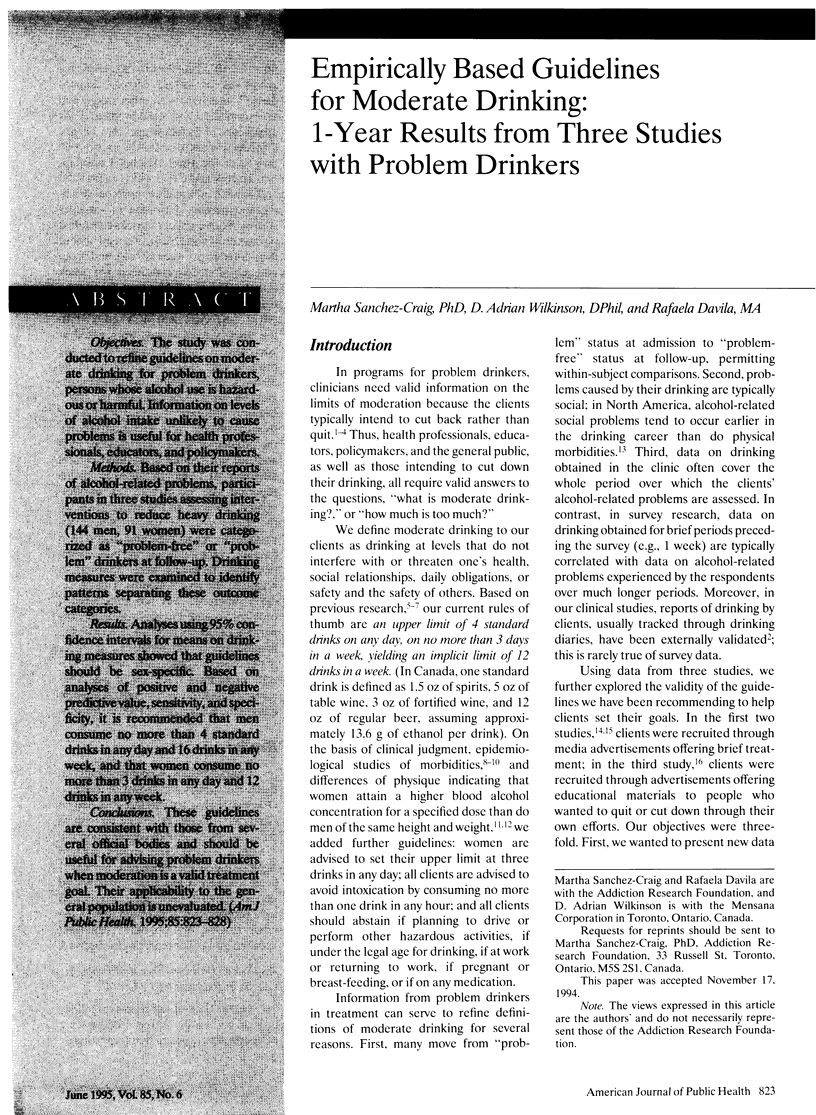

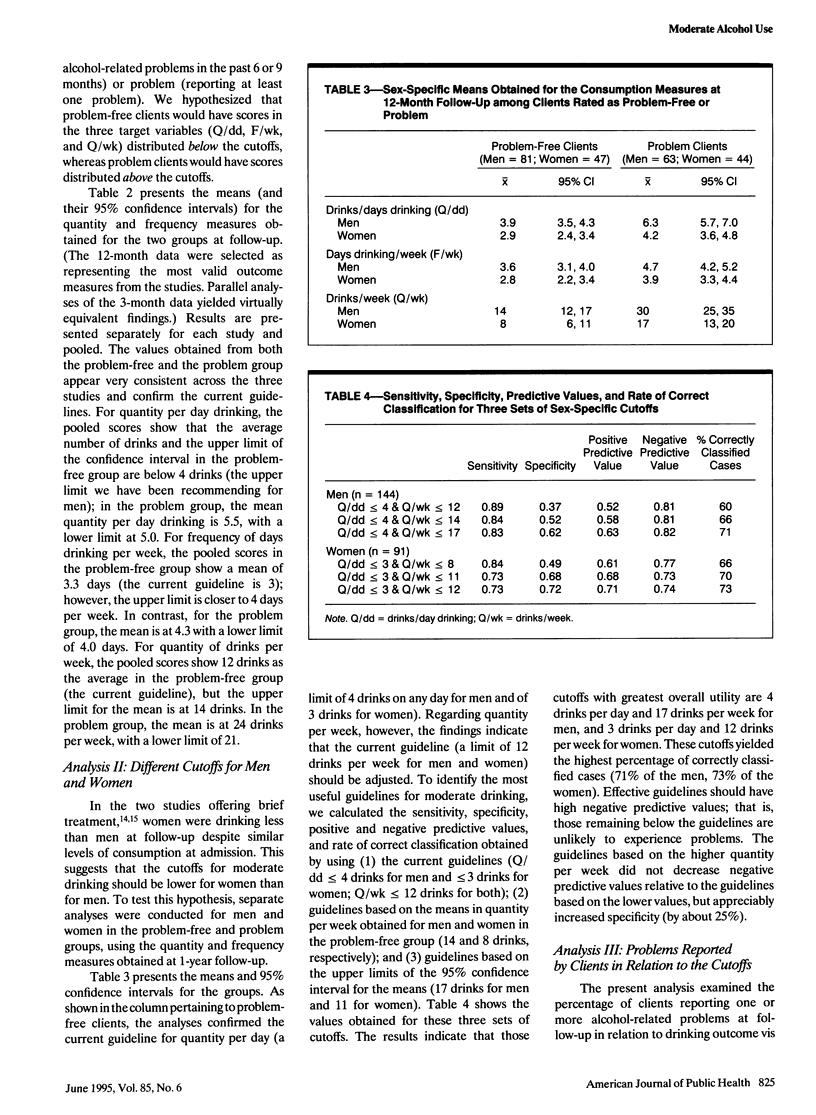
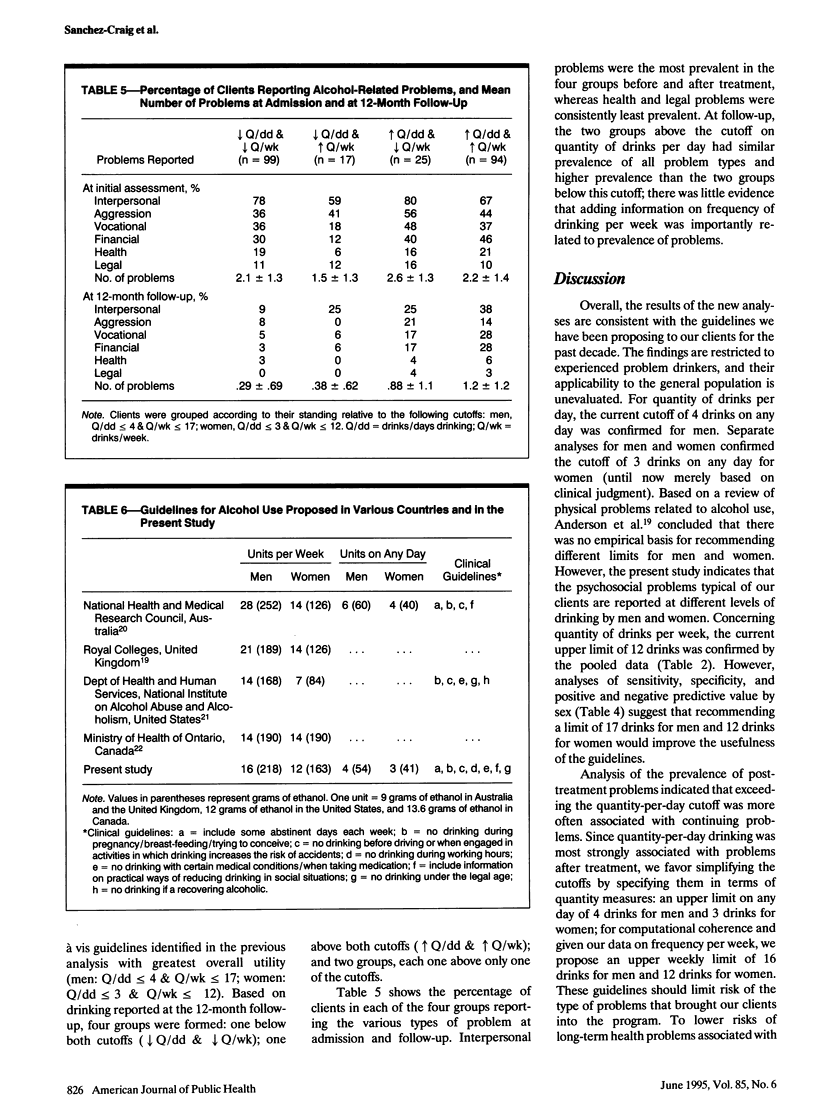
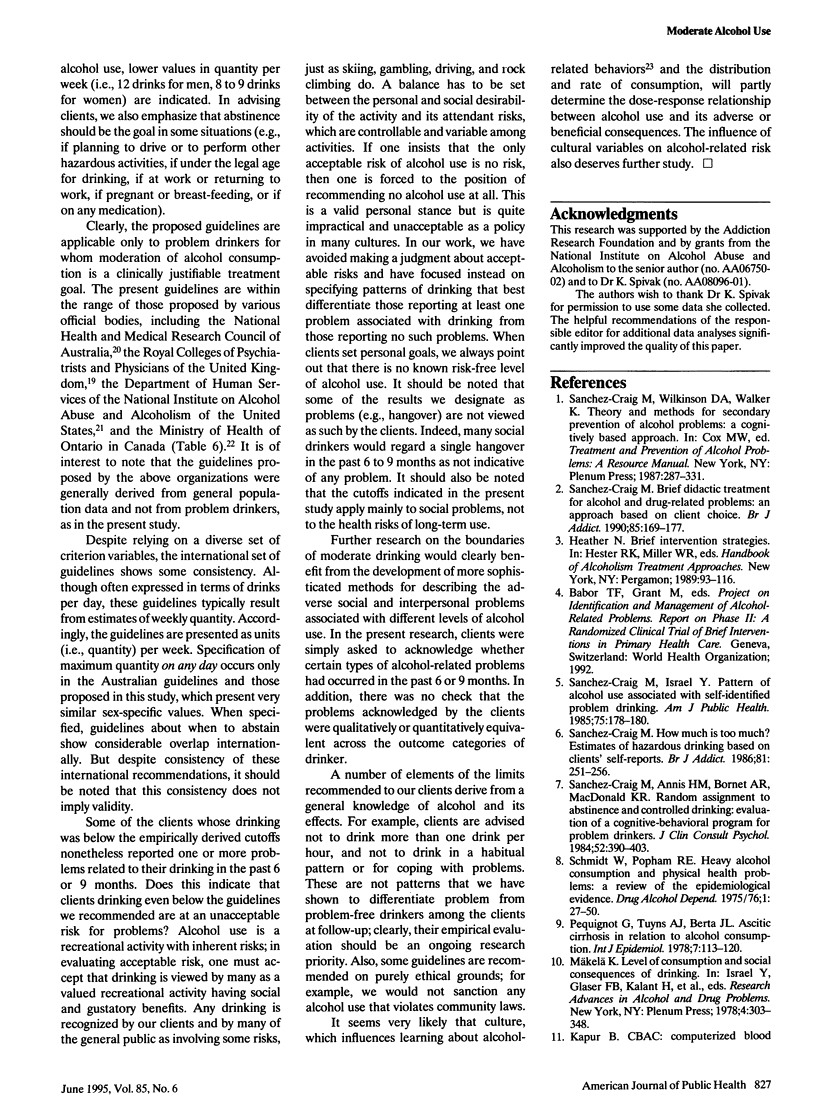
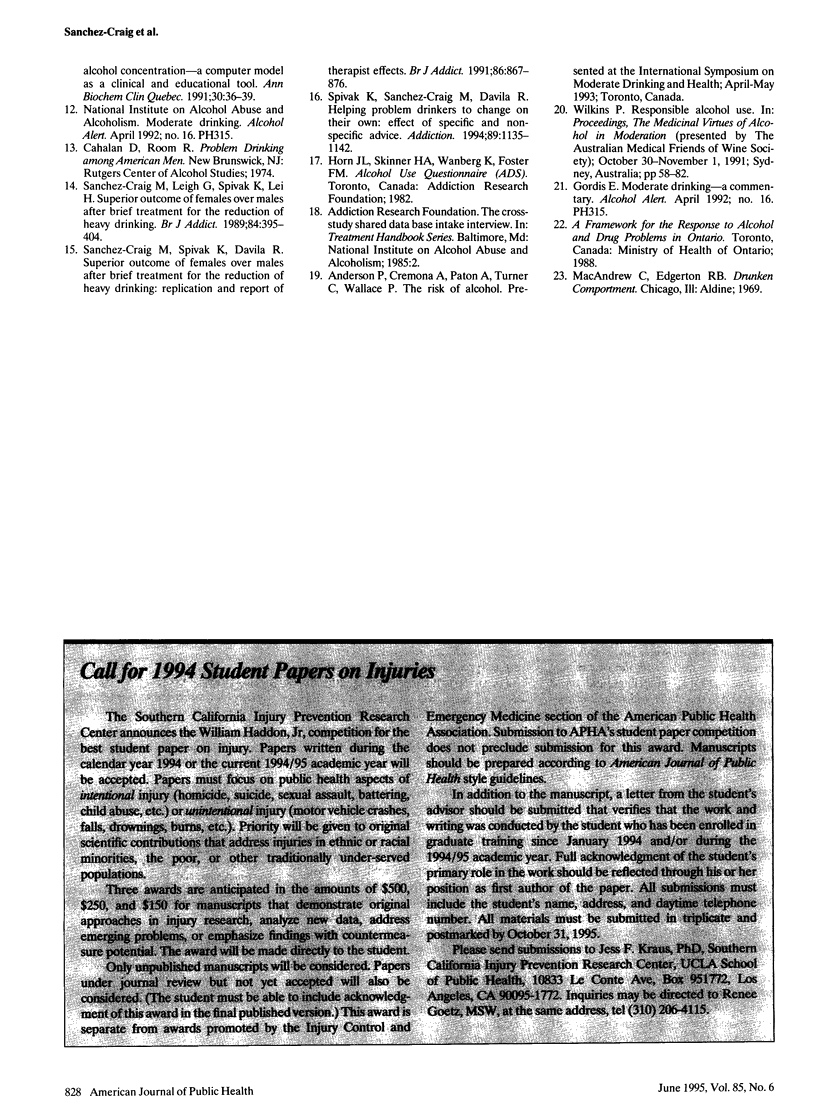
Selected References
These references are in PubMed. This may not be the complete list of references from this article.
- Pequignot G., Tuyns A. J., Berta J. L. Ascitic cirrhosis in relation to alcohol consumption. Int J Epidemiol. 1978 Jun;7(2):113–120. doi: 10.1093/ije/7.2.113. [DOI] [PubMed] [Google Scholar]
- Sanchez-Craig M., Annis H. M., Bornet A. R., MacDonald K. R. Random assignment to abstinence and controlled drinking: evaluation of a cognitive-behavioral program for problem drinkers. J Consult Clin Psychol. 1984 Jun;52(3):390–403. doi: 10.1037//0022-006x.52.3.390. [DOI] [PubMed] [Google Scholar]
- Sanchez-Craig M. Brief didactic treatment for alcohol and drug-related problems: an approach based on client choice. Br J Addict. 1990 Feb;85(2):169–177. doi: 10.1111/j.1360-0443.1990.tb03068.x. [DOI] [PubMed] [Google Scholar]
- Sanchez-Craig M. How much is too much? Estimates of hazardous drinking based on clients' self-reports. Br J Addict. 1986 Apr;81(2):251–256. doi: 10.1111/j.1360-0443.1986.tb00324.x. [DOI] [PubMed] [Google Scholar]
- Sanchez-Craig M., Israel Y. Pattern of alcohol use associated with self-identified problem drinking. Am J Public Health. 1985 Feb;75(2):178–180. doi: 10.2105/ajph.75.2.178. [DOI] [PMC free article] [PubMed] [Google Scholar]
- Sanchez-Craig M., Leigh G., Spivak K., Lei H. Superior outcome of females over males after brief treatment for the reduction of heavy drinking. Br J Addict. 1989 Apr;84(4):395–404. doi: 10.1111/j.1360-0443.1989.tb00583.x. [DOI] [PubMed] [Google Scholar]
- Sanchez-Craig M., Spivak K., Davila R. Superior outcome of females over males after brief treatment for the reduction of heavy drinking: replication and report of therapist effects. Br J Addict. 1991 Jul;86(7):867–876. doi: 10.1111/j.1360-0443.1991.tb01842.x. [DOI] [PubMed] [Google Scholar]
- Schmidt W., Popham R. E. Heavy alcohol consumption and physical health problems: a review of the epidemiological evidence. Drug Alcohol Depend. 1975 Sep;1(1):27–50. doi: 10.1016/0376-8716(75)90005-8. [DOI] [PubMed] [Google Scholar]
- Spivak K., Sanchez-Craig M., Davila R. Assisting problem drinkers to change on their own: effect of specific and non-specific advice. Addiction. 1994 Sep;89(9):1135–1142. doi: 10.1111/j.1360-0443.1994.tb02790.x. [DOI] [PubMed] [Google Scholar]


